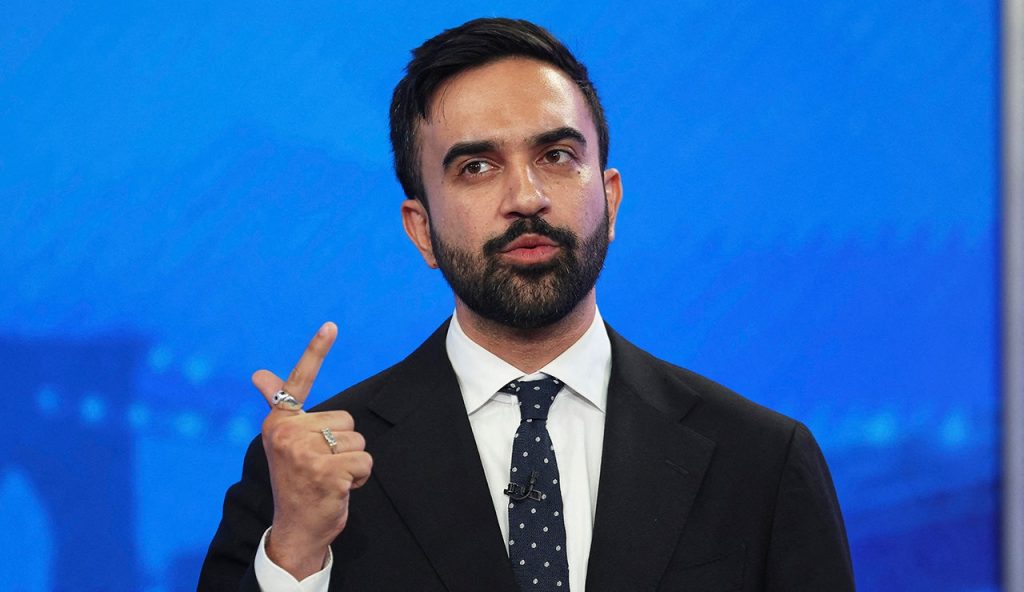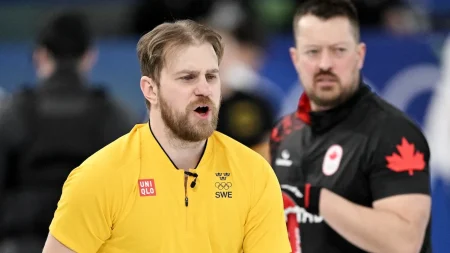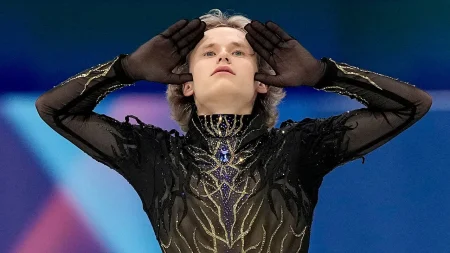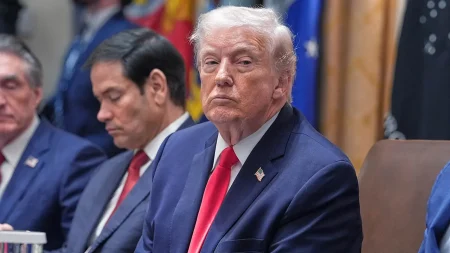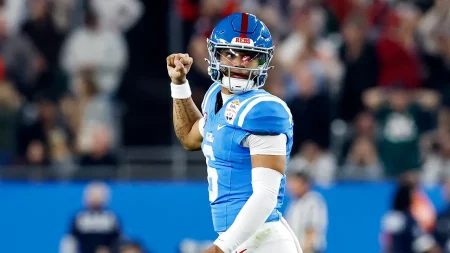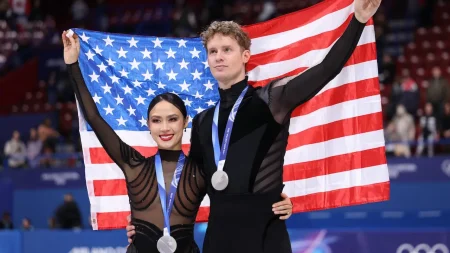Trump, World Cup, and the Politics of Soccer in New York
The Intersection of Politics and Sports: Trump’s World Cup Threats and New York’s Response
In an unusual twist of sports and politics, President Donald Trump recently threatened to remove World Cup matches from Boston if its Democratic mayor, Michelle Wu, didn’t address crime concerns. While New York has not received similar threats despite being scheduled to host the 2026 final at MetLife Stadium, the situation has highlighted how major sporting events can become politically charged. New York mayoral candidate Zohran Mamdani, previously labeled a “Communist lunatic” by Trump, took a conciliatory approach in a recent interview with Martha MacCallum, stating he would welcome both Trump and his soccer-enthusiast son Barron to the stadium. This olive branch comes after Trump attended July’s Club World Cup final at the same New Jersey venue, suggesting that despite political differences, the universal appeal of soccer might create unexpected common ground between political opponents.
New York’s World Cup Preparation: Mamdani’s Call for Leadership
Mamdani has positioned himself as an advocate for better World Cup planning, recently proposing the appointment of a dedicated “czar” to oversee New York’s participation in the tournament. During his interview with MacCallum, he emphasized that this role would ensure the global sporting spectacle benefits not just international visitors but also local residents and businesses. “The World Cup is the largest sporting event in the world, and it’s as if no one has been thinking or talking about it here in New York City government,” Mamdani observed, highlighting a perceived lack of preparation for an event expected to draw global attention. His vision extends beyond tourism, aiming to boost small businesses and encourage exploration of the city, addressing what he sees as a pattern of missed opportunities in New York’s approach to significant events—citing the city’s muted response to its 400th anniversary as an example of this oversight.
The Ticket Price Controversy: Affordability vs. Profit
A key point of contention in the World Cup preparations has been FIFA’s approach to ticket pricing, which Mamdani has vocally criticized. He called the prospect of “$6,000” tickets “absurd” and expressed concern that FIFA’s dynamic pricing model—where prices fluctuate based on demand—represents a departure from previous World Cup practices. Speaking on “Pablo Torre Finds Out,” Mamdani argued that such pricing strategies would effectively exclude many New Yorkers from experiencing the matches in person. His proposed solution is straightforward: setting aside 15% of tickets at discounted prices for local residents. This recommendation comes as FIFA announced that ticket prices will range from $60 for group-stage matches to as much as $6,730 for the final, with the potential for further increases based on demand patterns—a model that prioritizes maximizing revenue over accessibility.
Boston’s Response and the Politicization of World Cup Security
While the article mentions Trump’s threats regarding Boston’s World Cup hosting duties, it notably doesn’t elaborate on Mayor Wu’s response to these security concerns. This highlights how World Cup preparations have become entangled with broader political debates about urban governance, public safety, and leadership. Trump’s willingness to leverage the prestigious sporting event as political pressure underscores how the World Cup transcends mere athletics, becoming a symbol of a city’s international standing and administrative competence. The situation raises questions about the appropriate balance between federal oversight and local autonomy in preparing for global events, especially when those preparations intersect with contentious domestic political issues like crime and public safety.
The Economic and Cultural Stakes of the 2026 World Cup
The 2026 World Cup represents more than just a series of soccer matches; it’s a massive economic and cultural opportunity for host cities. Mamdani’s concerns about New York’s preparedness reflect broader questions about how American cities will capitalize on this global spotlight. With billions of viewers expected to tune in worldwide, the tournament offers unprecedented exposure for New York and other host cities. However, Mamdani suggests that without proper planning and inclusive policies, the benefits might flow primarily to corporate interests and wealthy visitors rather than enhancing the city’s long-term economic health and cultural vibrancy. His advocacy for a coordinated approach through a World Cup czar indicates recognition that successful hosting requires thoughtful integration of transportation, security, accommodation, and cultural programming—a complex challenge that crosses numerous municipal departments.
Looking Forward: Balancing Global Spectacle with Local Benefit
As the 2026 World Cup approaches, cities like New York face the challenge of balancing the demands of hosting a global spectacle with ensuring tangible benefits for their residents. Mamdani’s position illustrates a growing perspective that major sporting events should serve as catalysts for local improvement rather than temporary showcases that leave little lasting impact. The tension between FIFA’s profit-maximizing approach to ticket pricing and calls for greater accessibility exemplifies this broader dilemma. While the World Cup will undoubtedly bring international attention and tourist dollars to New York, Boston, and other host cities, the more meaningful measure of success may be how effectively these cities leverage the tournament to address long-standing urban challenges and create lasting benefits for their diverse communities. As political figures from Trump to Mamdani stake out positions on World Cup preparations, the event increasingly serves as a lens through which different visions of urban governance and international engagement come into focus.




